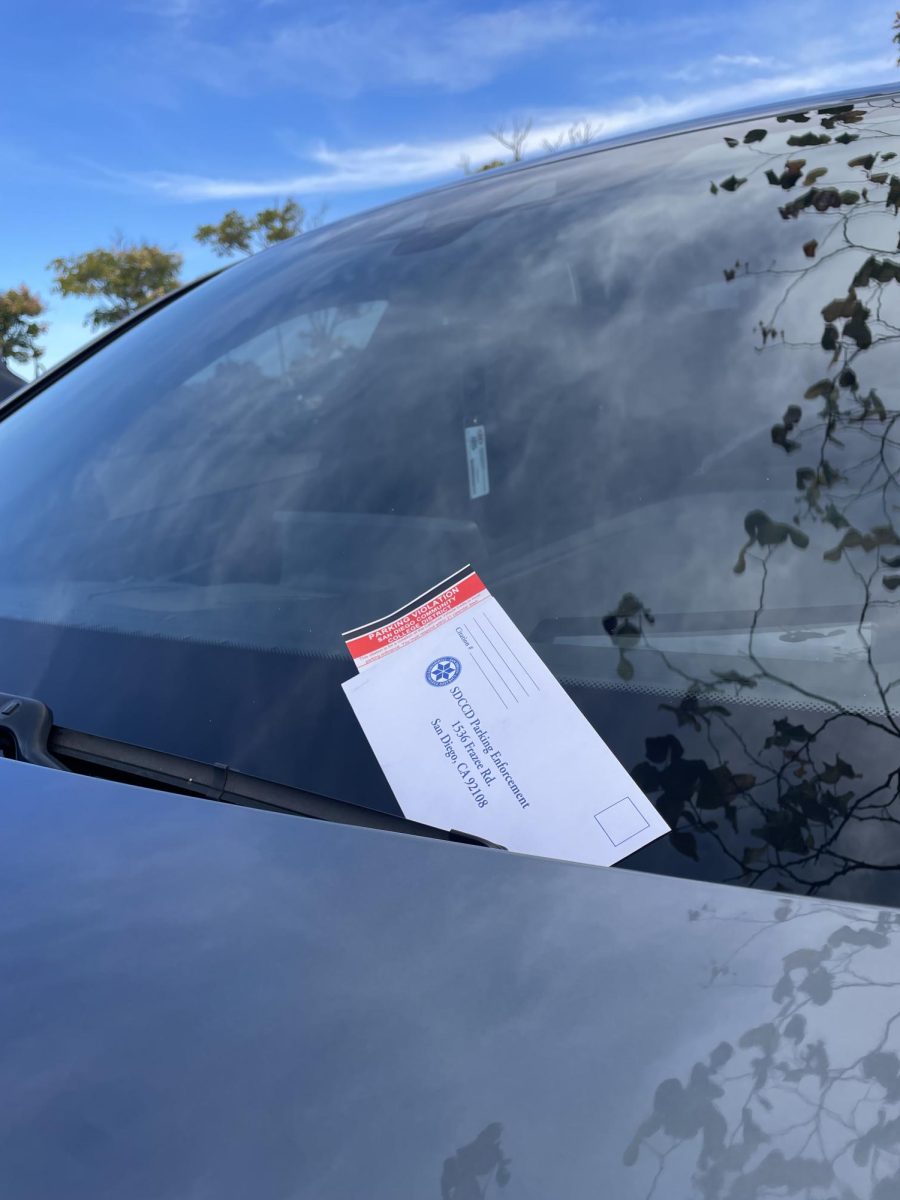A parking citation can elicit a cacophony of groans and protests from students on a college campus, but it looks like these instances are about to markedly decrease here at Mesa.
Whether parked a little too close to the red curb running late for class or a permit not displayed in the correct place, a parking citation is something almost anyone can unanimously agree on as a day-ruiner. When factoring in students with children or other family members to support, the high cost of parking fines could place them in a state of financial jeopardy. With many students already facing low income and poverty, an added fee like this might be the final nail in their financial coffin.
This issue has not gone over the heads of school officials, especially on Mesa campus. During the most recent chancellor’s forum, the issue of parking permits and citations was discussed, and a possible solution presented: digitizing the system in order to lessen the amount of citations given, and work for parking enforcement.
At the most recent Academic Senate meeting on Sept. 25, President Andrew Hoffman sparked a roundtable discussion over how the current parking permit situation can be improved and expanded upon. The idea is to replace physical parking permits with a fully digitized system, scanning license plates instead of hanging permits from rearview mirrors.
When discussing a potential solution to this problem, Hoffman said that “instead, electronic readers will be attached to Parking Services vehicles, and they will read the license plate numbers on cars in our parking lots. These numbers will be cross-checked with a database to ensure that the vehicle does indeed have a registered ‘virtual’ permit.”
This system would not be without its problems however, as pointed out by Sen. Jesse Keller and Sam Lee. The issue of data sharing and privacy was brought up, along with the fact that information could be passed along to U.S. Immigration and Customs Enforcement (ICE) and other law enforcement agencies. This could constitute a serious violation of students’ privacy, and is especially concerning for undocumented students. This issue will be taken up again during future academic senate meetings, according to Hoffman.
Others have also brought up the issue of students with multiple vehicles, or those who drive rentals. How would they be able to verify their parking permit status without using the same license plate? The idea has been proposed to add multiple different license plates to one person’s profile, in order to account for those who may not use one single vehicle at a time.
The cost of this new system is estimated to be $240,000, and will be paid for with funds from Proposition S and N, a voter-approved construction bond program going towards SDCCD. The system is expected to go into effect by the start of the spring 2024 semester.





